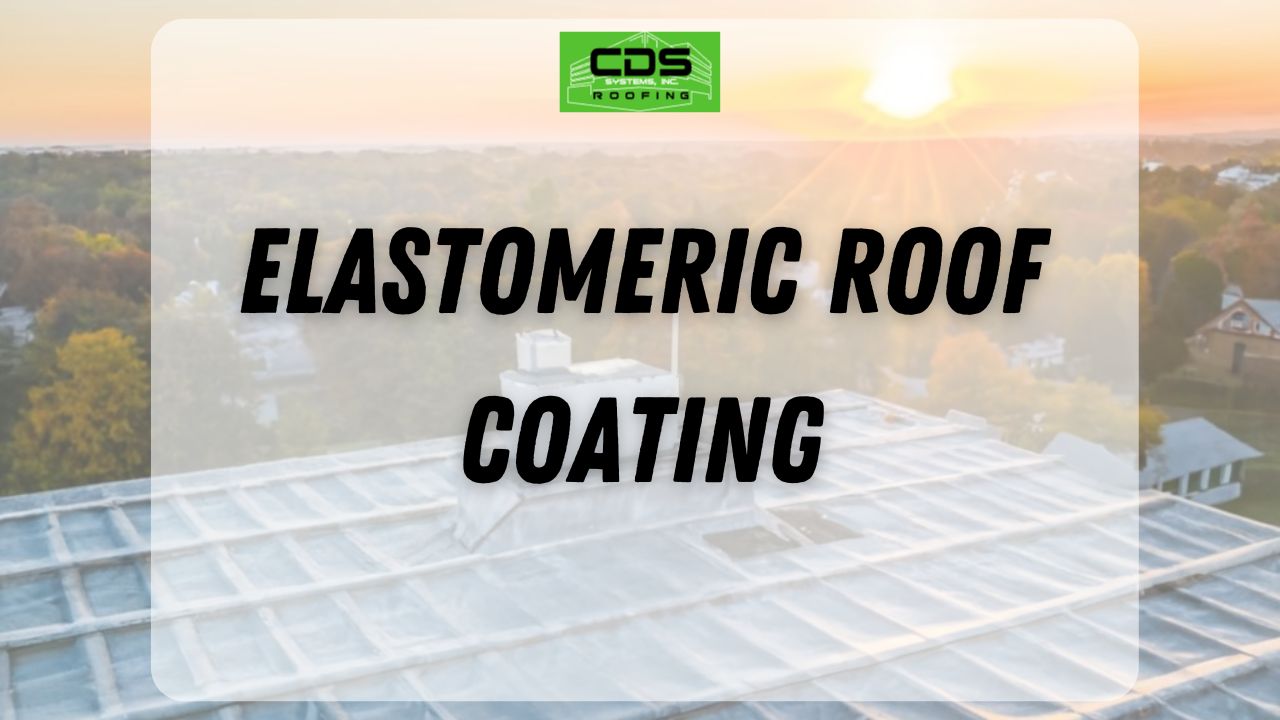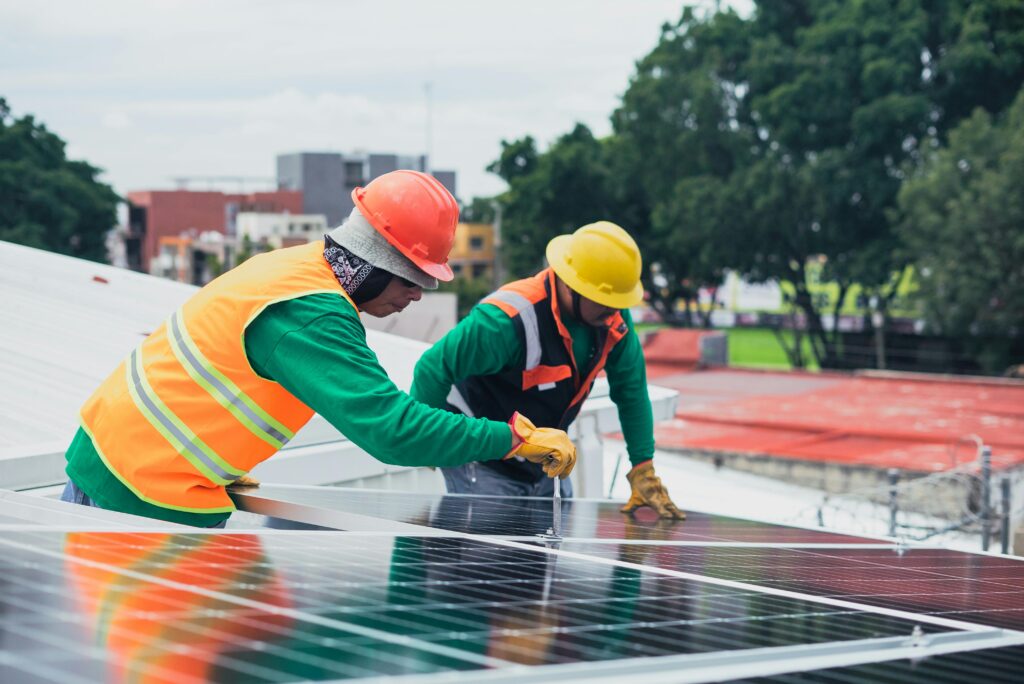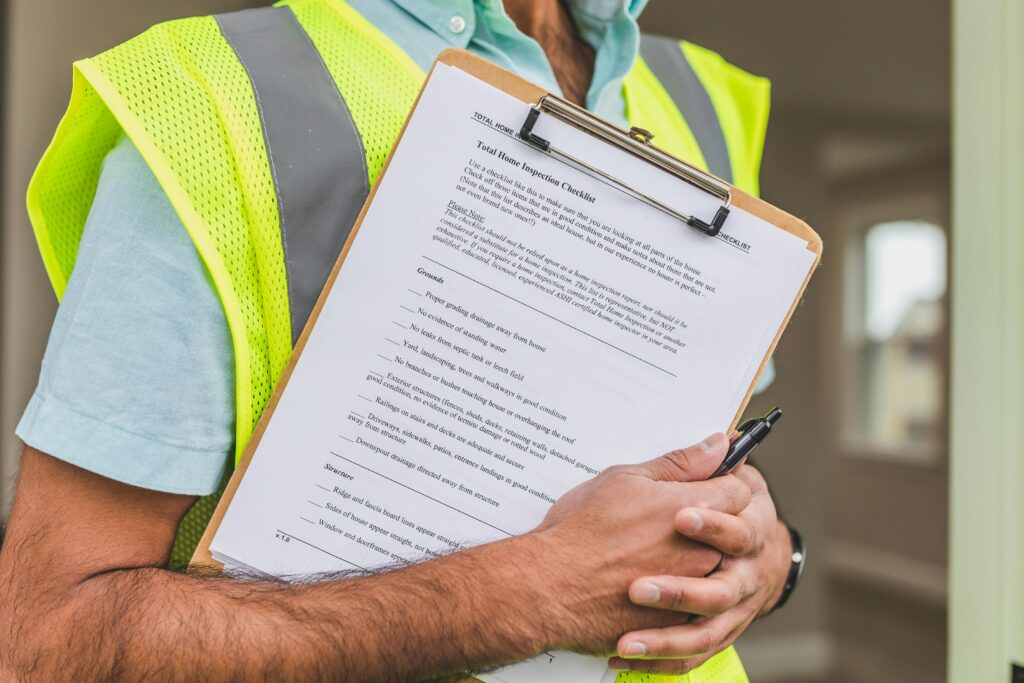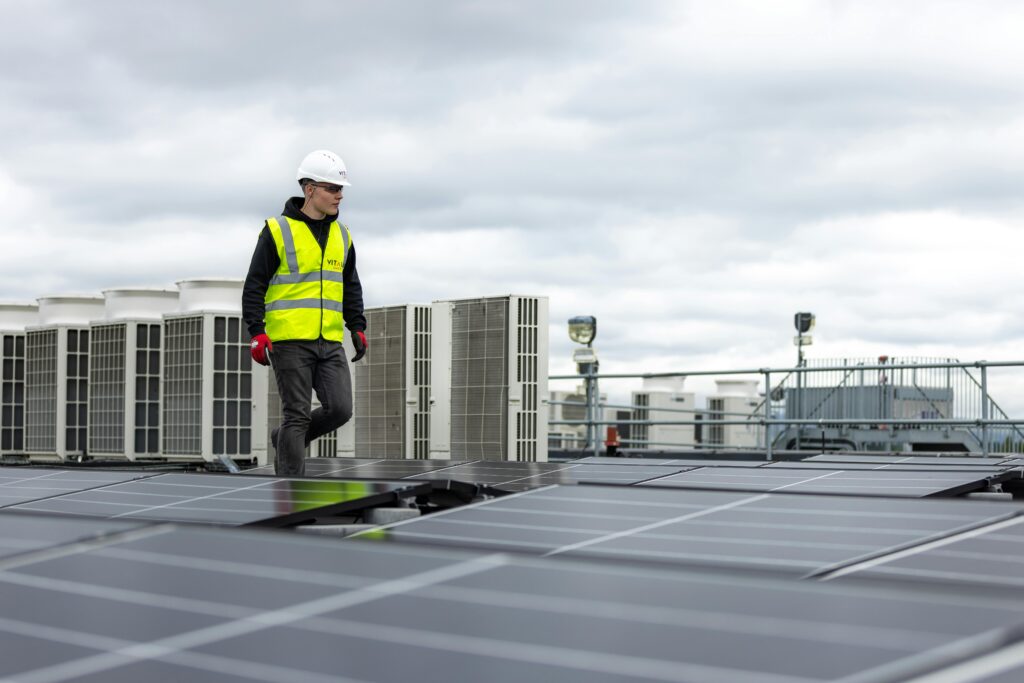Elastomeric Roof Coating: What Is It and How Can It Benefit Your Roofing System?
Roof coatings are an excellent way to extend the life of your roofing system and add more protection to your commercial building. There are several types of commercial and industrial roof coatings, including elastomeric roof coatings.
Elastomeric roof coatings create an additional membrane over your roof that reflects harmful UV rays and waterproofs your roof for extra protection.
These roof coatings come in a few different types–acrylic, silicone, and polyurethane–which we’ll look at in this article.
Understanding Elastomeric Roof Coating
An elastomeric roof coating is a liquid material applied over your existing roof. As it dries, it turns into a elastic membrane that provides a seamless layer of protection for your roof. Elastomeric roof coatings can extend the life of your roofing system by over 10 years and potentially up to 20.
Elastomeric roof coatings can be applied over many different types of industrial and commercial roofing materials, thanks to its flexibility and simple installation process. Roofs that can benefit from this type of coating include:
- Asphalt-based systems, such as built-up roofing (BUR)
- Metal
- Modified bitumen
- Single-ply membranes, such as EPDM, PVC, and TPO
Whether you’re looking for an easy repair solution or want to prolong a roof replacement, elastomeric roof coatings are an excellent choice.
Advantages of Elastomeric Roof Coatings
Elastomeric roof coatings are more than just a coat for your rooftop. They provide numerous advantages that help maintain the integrity and longevity of roofing systems. Let’s dive into the benefits of elastomeric roof coatings for commercial roofs.
Excellent Elasticity to Prevent Shrinking and Tearing
Elastometric roof coatings are known for their remarkable elasticity. When the liquid dries, it forms into a durable rubber-like material that allows it to come back to its initial shape after stretching, making it a perfect option for buildings located in areas with both freezing and scorching temperatures.
Enhanced Protection Against Ponding Water
One key benefit of elastomeric coatings is their ability to withstand ponding water, preventing leaks before they start. Large, deep pools of standing water on flat or low-slope roofs after rain can cause uneven weight distribution, wearing out the roofing material faster and potentially leading to leaks.
However, elastomeric coatings are formulated specifically to withstand such situations where conventional roofing products might fail, such as ponding water. Applying an elastomeric coating is like waterproofing your roof, sealing tears and cracks and adding years of life to your system with enhanced water protection.
Improved Energy Efficiency
In terms of enhancing energy efficiency, think of elastomeric roof coatings as sunscreen for your building. Not only do they prevent premature damage to your roofing system by reflecting UV rays, but they also reduce cooling costs substantially during those sweltering summer months.
As such, elastomeric coatings can boost energy efficiency while extending the life of your roofing system. Elastomeric’s energy-efficiency properties help businesses save on energy costs while reducing their carbon footprint.
Maximize Your Roof’s Lifespan
Since applying an elastomeric coating to your roof helps weatherproof it and prevent common types of damage, it can add many years of life onto your existing roof. This prevents business or building owners from having to take on a large roof replacement project.
Extending your roof’s lifespan also increases sustainability, as it prevents the old roofing material from ending up in landfills. Elastomeric coatings are an excellent way to prolong a roof replacement without risking damage to your property.
Types of Elastomeric Roof Coatings
Not all elastomeric coatings are the same. Let’s look at three types of elastomeric roof coatings: acrylic, silicone, and polyurethane.
Acrylic Roof Coating
Acrylic roof coatings have made their mark in the industry due to their ability to reflect sunlight effectively and their cost-effectiveness. However, they are not as waterproof as other types of elastomeric coatings, so they are best used on roofs that don’t have issues with ponding water or those with good drainage. The reflective property helps reduce heat absorption, reducing energy costs during summer months, making acrylic a good choice for roofs exposed to harsh sunlight year-round.
Silicone Roof Coating
Silicone roof coatings offer strong resistance against ponding water, an issue many building owners deal with when it comes to flat roofs or low-slope roofs. Silicone is also highly flexible, which means the material easily returns to its original shape after stretching. It also provides enhanced UV protection.
Although this type of coating requires more maintenance as it dirties easier than acrylic or polyurethane, it’s an attractive option for buildings that need enhanced waterproofing properties for their roof coating.
Polyurethane Roof Coating
Last but certainly not least is polyurethane, sometimes referred to as urethane. Urethane is a type of elastomeric roof coating ecognized for its robust impact resistance properties. As such, urethane is a good choice for roofs frequently exposed to foot traffic or falling debris. It’s also a great choice for roofs that deal with ponding water on a regular basis.
Installation and Maintenance of Elastomeric Roof Coatings
Installing an elastomeric roof coating isn’t like replacing your roof. Commercial roofing contractors can install the coating in as little as one or two days, depending on the size of your building, and then your roof is protected once the material is dry.
Maintenance mainly involves regular inspections, especially after major weather events, or at least twice annually during the spring and fall seasons to prepare for harsh summer and winter weather. You can schedule regular maintenance and inspections with a commercial roofer to maximize the life of your roof coating.
Elastomerics come with excellent warranties, but their lifespan can be extended beyond that with regular maintenance, making them not only cost-effective but also an excellent choice for long-term roofing solutions.
Cost-Effectiveness of Elastomeric Roof Coatings
Elastomeric roof coatings offer a high return on investment thanks to their longevity and energy-saving properties. The price for a coating will vary depending on the material you choose, the condition of your existing roof, and the square footage of your roof.
Investing in an elastomeric roof coating can save money over time by reducing repair needs and energy costs, not to mention adding years onto your existing roof lifespan. A commercial roofer can assess the condition of your roof and help you decide if a roof coating would be worth the investment.
Discuss Your Roof Coating Options With CDS
Elastomeric roof coatings provide durability and protection without breaking the bank. Does your roof qualify for an elastomeric roof coating? Contact CDS Roofing today to schedule a free consultation and find out if your commercial or industrial roof could benefit from these high-quality coatings.




